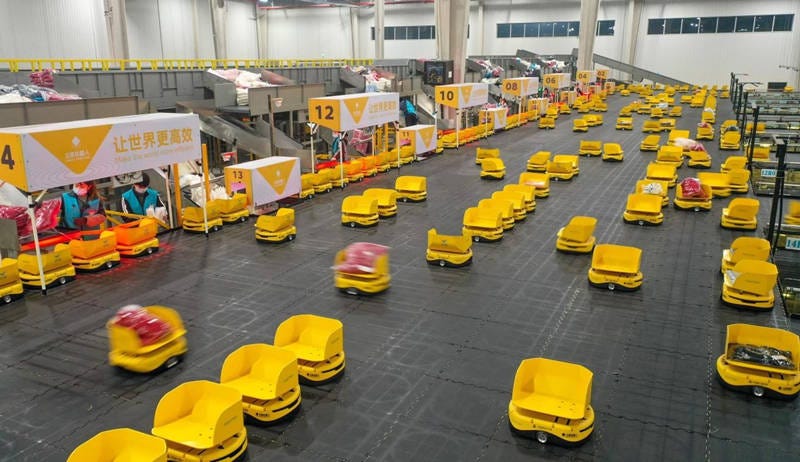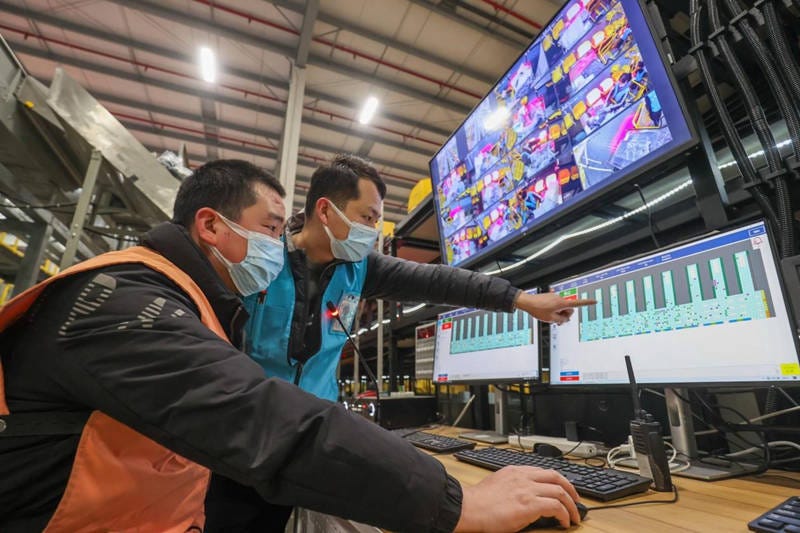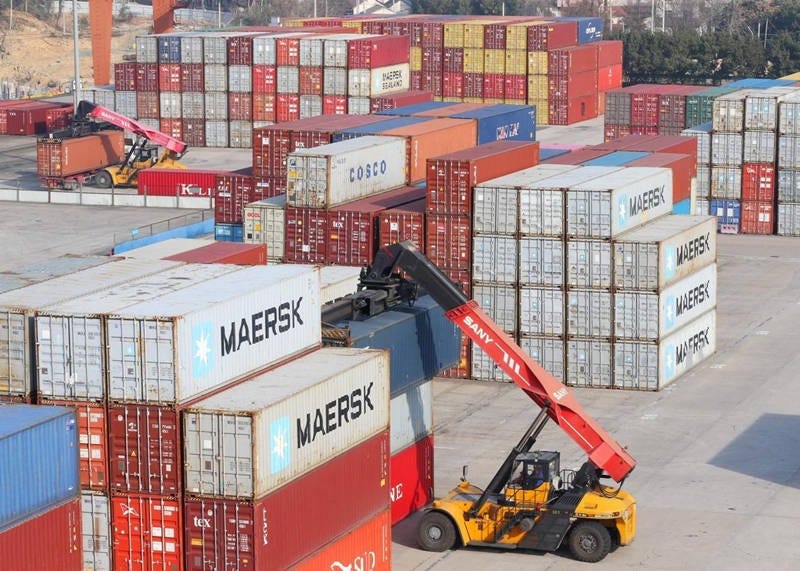In these times when we have everything at our fingertips thanks to online shopping, commerce has reached unprecedented levels that no one would have predicted 30 years ago. With the improvement in the income of the populations of emerging countries, they join the consumerist fever and the world prospers.
We have the clearest example of this evolution in China. Since the death of Mao Tse Tung in 1976, and after the failure of his “The Great Leap Forward” policy, developed since 1958, Deng Xiaoping came to power, being the author of the reform plan that would transform the country, and that They have taken it to the place it occupies today in the world, on the verge of snatching the leadership of world trade from the United States itself.
While Deng maintained tight political control of the country, he instead liberalized the economy by promoting industrialization and investing in infrastructure that is today the envy of the world. He began agricultural reforms, ending collectivization and replacing it with a system of responsibility in production with income, based on performance. That is to say, the old popular communes would now be private lots in cooperatives or individuals, managing to increase agricultural and livestock production, and as a consequence of this change, another occurred: millions of Chinese from agricultural areas went to the city in search of a better life and a job that they no longer had in the countryside, since many of them were displaced.
In parallel and simultaneously, special economic zones were created for foreign companies that would be exempt from many of the state regulations, and which gave way to the famous “Made in China” of a large number of products from foreign brands that relocated their productions. due to its lower cost. The European and North American companies that settled in China, taking advantage of cheap labor, contributed decisively to technological development, the production of goods and services, and the development of exports. China’s economic development following Deng’s reforms positioned China as a great economic power worldwide, becoming the world’s factory. In December 2001, after 15 years of arduous negotiations, China joined the WTO, a factor that greatly contributed to its development.
Socially, the Chinese population has had an enormous life change in this period of time. The poor farmers of the 60s and 70s, who now live in large cities, have a better-paid and less laborious job than the one they had, and have incorporated millions of their inhabitants into the world of consumption.
Thanks to this transformation, yesterday a historic milestone occurred that no Western media, whether general or specialized, has reported: the Chinese State Post Office reported that the annual commercial volume of express delivery of packages (the vast majority of which are purchases by internet), exceeded 120 billion pieces. 8.5% more than in all of 2022, and the year and the Christmas campaign have not yet ended. These 120 billion express packages have traveled thousands of miles.
At the foot of Mount Everest, in Zhaxi’s ancestral hometown of Dingri County, Tibet, which is more than 4,000 meters above sea level, the persistence of the courier service allows express courier packages from Beijing, Shanghai and Guangzhou arrive in just five days. From Shenzhen to Los Angeles, an express package is loaded onto the plane, crosses the Pacific Ocean, and can be delivered to the door the next day.
Let’s get an idea of what 120 billion packages take up
The 120 billionth package tallied by the bureau was a delivery of fresh flowers sent from Kunming on Monday night. It was shipped by high-speed train to Chengdu in neighboring Sichuan province and did not take long to arrive at the buyer’s home.
Every day, in China, more than 300 million packages are sent to private homes due to online purchases, shipments that mobilize hundreds of thousands of trucks and vans behind these individualized and rapid deliveries, and that leave a mountain of plastics, cardboard and CO2 emissions behind the rapid delivery of 120 billion packages. The truth is that this way of receiving merchandise at the door of our house is very convenient, and we do not think about the consequences it brings in terms of GHG emissions and accumulation of garbage.
China has been preparing for this digital economy with new transportation infrastructure across the country, and tens of millions of Chinese work in the “fast delivery economy,” as has the digitalization of neighborhood stores, since millions of them serve as a fundamental piece for last mile delivery in the Chinese cities. But this is not happening in Spain or Europe, at least not at the same level, and where there are collection points, few use them, because they prefer to take the package home.
Let’s give an example of how the country is evolving its supply chain: China is about to put into service the country’s first professional cargo airport, Ezhou Huahu Airport, a well-deserved “big project” of the express logistics industry. China in recent years, and it is also the first time that a Chinese express logistics company has expanded its investment field to airport facilities. All of this stems from the rapid development of the industry and consumers’ high requirements for punctuality. With Ezhou as the hub, the 1.5-hour flight circle can cover 80% of the country’s population and can reach major domestic airports in one night and major airports around the world the next day. By 2030, the annual cargo and mail throughput of Ezhou Huahu Airport is expected to reach 3.3 million tons.
At the same time, China is investing in large logistics platforms around the world. As of November 2021, Cainiao Network Technology Co., Ltd.’s seven distribution centers in Liege (Belgium), Madrid (Spain), Paris (France), Bremen (Germany), Rome (Italy), Budapest (Hungary) and Moscow (Russia) officially came into operation. Not only that, Cainiao has also launched more than 300 charter flights, with an estimated cargo capacity of more than 30,000 tons. In recent years, China’s express logistics companies have accelerated their overseas distribution and built a total of 240 overseas warehouses with an area of nearly 2 million square meters.
The vigorous development of the express logistics industry not only helps the manufacturing industry reduce costs and increase efficiency through the integration of the two industries, but also facilitates the outflow of Made in China products abroad amidst the globalization. It is the Chinese response to the relocation of productions that some European countries and North America have undertaken.
Little can be done with the world trade force that is China, and of course decisions like those made by Apple to move its production to India can be expensive. Not only because it can affect their degree of penetration in the Chinese market, but because the cost of transportation will not lower the production costs of their products, and that will also affect their bottom line. Other companies will have to rethink the same decision, since at the current time they may not understand relocating production, also due to the changes in logistics that this would entail. Today no one can compete with China in those two industries, manufacturing and distribution.
El artículo se puede leer en español en este enlace.



Comments